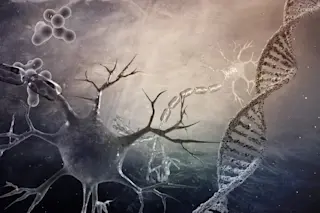The brain is quite the circus act: It constantly juggles the complex job of processing a daily barrage of new experiences with the equally daunting task of storing memories. But scientists never understood how it managed to pull this off. Now, two studies published in June reveal it’s because neurons, brain cells that transmit messages, alter their DNA constantly.
The trick is methylation and demethylation — adding and removing chemical tags called methyl groups to specific locations on DNA that turn genes on and off without editing the genetic code itself.
Researchers recently discovered that adult mouse neurons methylate and demethylate — startling, since experts thought methylation happened only during brain development and then became permanent, to establish cells’ identities. Given these findings, University of Alabama at Birmingham neurobiologist David Sweatt and Johns Hopkins University neurobiologist Hongjun Song wondered if methyl groups affected long-term memory formation.
The researchers knew that ...















